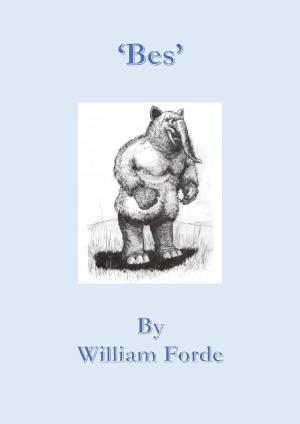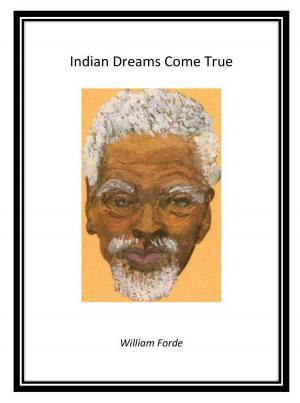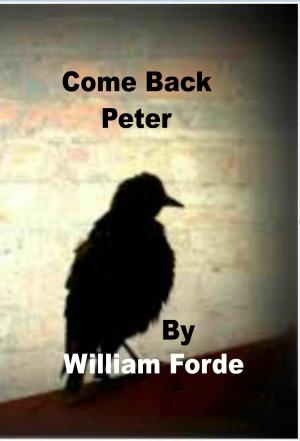| Author: | William Forde | ISBN: | 9781465896391 |
| Publisher: | William Forde | Publication: | January 24, 2012 |
| Imprint: | Smashwords Edition | Language: | English |
| Author: | William Forde |
| ISBN: | 9781465896391 |
| Publisher: | William Forde |
| Publication: | January 24, 2012 |
| Imprint: | Smashwords Edition |
| Language: | English |
As a growing child, the one thing that I experienced in abundance was ‘second chances.’ In fact, I’d go as far as to say that without having had my fair share of second chances, my life would have taken a much different course. Second chances were my life saver!
Not surprisingly, one of my favourite books was Victor Hugo’s ‘Les Misērables,’ a story that was chiefly responsible for transforming me from ‘Thief’ to that of ‘Probation Officer’ in later life. I was also fascinated by the bible story of Christ telling His followers to ‘turn the other cheek’ in circumstances where it seemed more natural to ‘strike back.’ I eventually came to understand that the instruction of Christ to turn the other cheek wasn’t so that the offender might strike you once more, but to afford him/her ‘a second chance’ not to strike you again.
Wherever the fault lies, whatever the character trait requiring changing happens to be or however the behaviour needs improvement, being provided with ‘a second chance’ is essential to one’s overall sense of well being.
It may be that losing weight is what is required to getting a second chance at life or giving up smoking or abstaining from alcohol or drugs. One may need to address one’s inappropriate behaviour of aggression, distrust, bullying, dishonesty, name calling or anything which adversely affects one’s life and image. Whatever the unhappy state of being, ‘a second chance’ may be what one requires to either give or receive.
‘Sleezy the Fox’ is a book of four stories about the overarching theme of ‘second chances’. On the surface it deals with the immigration of a married couple and their seven children into a strange country, the bullying of neighbours, the ostracizing of offenders from the community as a whole and the alienation that often exists between man and wild beast and beast and wild man!
Each of us shall experience or perpetrate some wrong in our lives. At the critical stage of reconciliation and healing, it is vitally important that we are able to give others and ourselves the benefit of a ‘second chance’. And if you are like I used to be growing up, you may need to receive a ‘second chance’ many times before you eventually get it right.
As a growing child, the one thing that I experienced in abundance was ‘second chances.’ In fact, I’d go as far as to say that without having had my fair share of second chances, my life would have taken a much different course. Second chances were my life saver!
Not surprisingly, one of my favourite books was Victor Hugo’s ‘Les Misērables,’ a story that was chiefly responsible for transforming me from ‘Thief’ to that of ‘Probation Officer’ in later life. I was also fascinated by the bible story of Christ telling His followers to ‘turn the other cheek’ in circumstances where it seemed more natural to ‘strike back.’ I eventually came to understand that the instruction of Christ to turn the other cheek wasn’t so that the offender might strike you once more, but to afford him/her ‘a second chance’ not to strike you again.
Wherever the fault lies, whatever the character trait requiring changing happens to be or however the behaviour needs improvement, being provided with ‘a second chance’ is essential to one’s overall sense of well being.
It may be that losing weight is what is required to getting a second chance at life or giving up smoking or abstaining from alcohol or drugs. One may need to address one’s inappropriate behaviour of aggression, distrust, bullying, dishonesty, name calling or anything which adversely affects one’s life and image. Whatever the unhappy state of being, ‘a second chance’ may be what one requires to either give or receive.
‘Sleezy the Fox’ is a book of four stories about the overarching theme of ‘second chances’. On the surface it deals with the immigration of a married couple and their seven children into a strange country, the bullying of neighbours, the ostracizing of offenders from the community as a whole and the alienation that often exists between man and wild beast and beast and wild man!
Each of us shall experience or perpetrate some wrong in our lives. At the critical stage of reconciliation and healing, it is vitally important that we are able to give others and ourselves the benefit of a ‘second chance’. And if you are like I used to be growing up, you may need to receive a ‘second chance’ many times before you eventually get it right.















